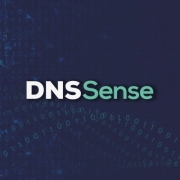DNS Security safeguards digital environments by protecting domain name infrastructures from various threats. It involves technologies and protocols that ensure the security and privacy of data transactions through domain systems.
In an era where cybercrimes are on the rise, DNS Security plays a crucial role in protecting networks from phishing, malware attacks, and unauthorized data access. Misconfigurations in DNS can be exploited by attackers, making DNS Security indispensable for maintaining trust and reliability in online domains. Security measures employed in DNS often include DNSSEC, which adds an additional layer of verification to DNS queries, ensuring that the responses are accurate and non-compromised.
What are the critical features of DNS Security?DNS Security is particularly significant in industries like finance and healthcare where data protection and compliance are critical. These sectors rely on complex DNS systems to manage data exchanges securely. Implementing robust DNS Security measures helps protect against breaches, which can have severe regulatory and reputational consequences.
Implementing DNS Security is crucial for any organization looking to maintain secure and trustworthy digital communication channels. It ensures reliable user access to services while minimizing risks associated with cyber threats.
| Product | Market Share (%) |
|---|---|
| Cisco Umbrella | 20.6% |
| Infoblox Advanced DNS Protection | 19.3% |
| Palo Alto Networks DNS Security | 11.5% |
| Other | 48.599999999999994% |













































Domain name system security (DNSSEC) adds a level of protection to the DNS by using two digital keys to authenticate any address retrieved by the DNS. One of the keys is held privately by the owner of the website and revealed to no one. The other key is present in the code of the web page where anyone can access it publicly. These keys attempt to verify the authenticity of a signature on the web page data that the DNS pulls up. A search for a web page prompts the DNS to retrieve and attempt to match the public key to a digital signature that stamps the data. If the key confirms that the signature is valid, then the information is returned to the person who issued the query. However, if the key is unable to verify the data as valid, then the data is rejected. The system will assume that it is under attack and will issue an error message.
The reason that domain name system security is necessary is that by itself the DNS is not secure. It is possible for hackers to manipulate the DNS and send users to any web page that they desire. An unsuspecting person can be redirected to a site which can maliciously target them. Hackers have the ability to forge DNS data and make it so that the IP address appears to be anything that they want. The computer that launches the query ordinarily would not have any way to determine the true source of the data. The development of DNSSEC created a way of securing the DNS against data forgery.
A domain name system (DNS) is an object in itself. This is a program that takes domain names and transforms it into a format that computers are able to read. It exists as its own independent entity and requires nothing else for it to be meaningful. Domain name system security (DNSSEC) is a protocol that exists as an addition to DNS. DNSSEC provides a layer of security to the DNS which is otherwise pretty insecure. For this reason, DNSSEC only has meaning when seen as an add-on to the DNS.
There are a number of benefits that come with the use of domain name system security (DNSSEC). It can:
DNS Security can prevent Distributed Denial of Service (DDoS) attacks by employing rate limiting and filtering techniques. These measures eliminate abnormal spikes in traffic by blocking or redirecting suspicious requests. You should also consider using DNSSEC and Anycast routing to enhance resilience, ensuring that your users experience minimal downtime even under attack.
What is DNSSEC and how does it enhance security?DNS Security Extensions (DNSSEC) add a layer of security by enabling DNS responses to be verified using digital signatures. This process ensures that the data has not been tampered with, thereby preventing cache poisoning attacks. Enabling DNSSEC in your networks instills confidence by ensuring that users reach the genuine site, protecting the integrity of your data exchanges.
Why should businesses use DNS Filtering?DNS Filtering is vital for keeping malicious domains at bay before they can infiltrate your network. By blocking access to harmful websites, you protect against data breaches and other cyber threats. As a business, using DNS Filtering not only protects sensitive information but also enforces company policies and compliance standards efficiently.
How do private DNS servers improve online security?Private DNS servers enhance security by restricting data exposure to third parties. When you use private DNS, you can customize security policies to closely align with your organization’s needs, control which domains are resolved, and prevent data leaks. This approach is especially beneficial for enterprises concerned about confidentiality and secure data transmission.
What role does Anycast play in DNS Security?Anycast improves DNS Security by distributing DNS queries across multiple geographically dispersed servers, which reduces latency and increases reliability. This method provides greater resilience to attacks since traffic will be directed to the nearest and most capable server, diminishing the threat impact area and improving overall service availability for your users.